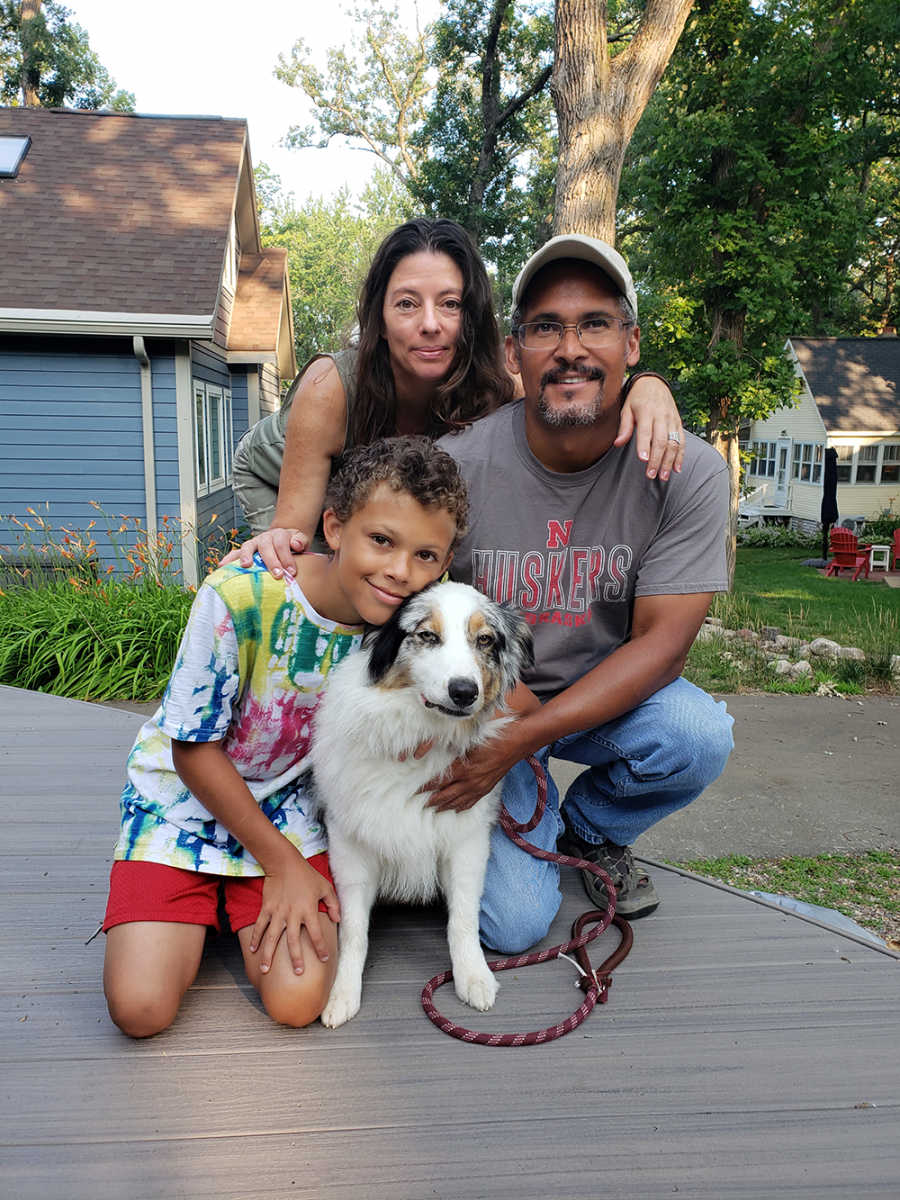
MHDI FACULTY SPOTLIGHT
Rochelle Dalla Professor, Department of Child, Youth and Family Studies
Date that you joined UNL: August, 1996— at 26 years of age and a recently hooded Ph.D.!
Hometown: I was born and raised in Durango, CO. Growing up there, I thought it was such a small dot-on-the-map town with “nothing to do.” Today, Durango is a tourist-attraction extraordinaire—I rarely mention the town without someone saying they’ve been there, plan to go there, or wish they could go there. Beyond general tourists and site-seekers, Durango is also a year-round mecca for sports’ enthusiasts—from rock climbers, mountain bikers, and river rafters, to winter sports’ fans of all types (skiers, snowboarders, snowshoers, snowmobilers, etc.…). I am now very proud to call Durango my home town and a place where five generations of my family were born and raised.
Describe your research and how it contributes to alleviating or understanding health disparities?
Broadly, my research focuses on familial, cultural, and social vulnerabilities that result in sex trafficking of women, as well as how those challenges may direct intergenerational development (for the women’s children). For the past decade, my research has been centered in India—with particular interest in how caste membership dictates life choices—and in particular—child sex trafficking in the Indian rural sex economy. I’ve come to realize: (1) human trafficking (for labor or sex) exists on an unfathomable scale, (2) that what is “known” in the academic literature barely scratches the surface of what is not known; and (3) the structural barriers that promote human exploitation and trafficking are exceptionally broad and deep—such that only when interdisciplinary experts and multi-sectorial advocates work together will sustainable change be possible.
My doctoral research, originally, was on divorce—as a child of divorce I was somewhat interested in the topic. Then, an opportunity arose to travel to the Navajo Reservation to investigate why teenage mothers were not taking advantage of the on-site high-school daycare. I accepted the challenge with the caveat that I could collect additional data for my M.S. thesis. I went back to the Reservation for a more in-depth look at intergenerational parenting and cultural practices for my dissertation research. So, to be honest, the goal when I first went to the Reservation was to collect and analyze the data so I could start publishing. My motivation when I left the reservation—after being witness to the life-stories of those families—was to help the world better understand the unique and disparate challenges faced by those youth (and myriads like them)—in trying to make a better life for themselves and their children—and the recognition that, despite their desires, hopes and dreams—the challenges were likely much too vast, systemic, and deep to be overcome.
What advice would you give to incoming students (graduate or undergraduate) who are interested in studying health disparities?
I would say reach out to those whose work inspires you—don’t be shy! I’ve found the UNL campus, and MHDI affiliates specifically, are exceptionally warm and inviting, in addition to being generous with their time, knowledge, expertise as well as with sharing opportunities to help others along the journey.
What advice would you give to incoming faculty who are interested in health disparity research?
Similar advice as above, but with the caveat that multi-group, multi-disciplinary, and multi-method research is highly valued among MHDI faculty and affiliates. Further, gone are the days of flying-solo and being successful in academia—we need each other to thrive. Attend cross-campus events, workshops, brown-bags, writing circles, etc.…you WILL find a team (or several teams) within which you can contribute to, learn from, and be supported by!
What would your colleagues/students be surprised to learn about you?
I kind of cheated here—I looked at what prior MHDI spotlight scholars wrote in response to this question!! Funny thing is that, opposed to Julie Tippens, for instance, who regards herself as “an open book”—I am a rather private person. I would venture to guess that there are many things my colleagues and students would be surprised to learn about me. I’ll mention two here— as they both represent the randomness by which I ended up with a Ph.D. (and in Human Development and Family Studies no less!).
The first is that my older sister was well-known in Durango as a problem-kid and trouble-maker (e.g., drug use, high-school drop-out, myriad criminal activities, etc.…). In response, my behavior was motivated by a desire to be the exact opposite of her. Thus, even though I hadn’t planned on earning a Ph.D.—much less a master’s degree—I nonetheless took pride in a perfect GPA and participated in extra-curriculars of all sorts (anything to contribute positively to society)…which of course down the road looked fantastic on grad school applications. To this day I claim that, had my sister been a role model student, I’d likely have been a criminal!
The second is that I thought I wanted to be a clinical psychologist and so applied to a clinical psych. M.S. program at the University of Arizona (not because it offered a great clinical psych. program—but because Tucson was the warmest place I could think of and I was tired of the Colorado cold). My application was rejected—but, unbeknownst to me, it was also forwarded to the graduate selection committee of a newly established Ph.D. program in Human Development and Family Studies. I was contacted by the Department Chair who thought I would be a good fit for their comprehensive doctoral program (which I didn’t even know existed) and who offered me an Assistantship! The rest is history…peppered by a succession of equally unplanned and arbitrary opportunities and “coincidences”!